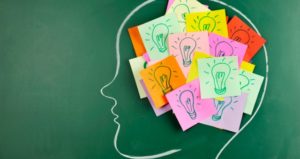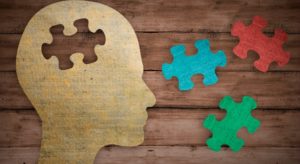
Stop Giving Them Answers: Make Them Think!
Higher education has recently changed in faster and more dynamic ways than anticipated. COVID-19 is an immediate factor, but the access to information is more


Higher education has recently changed in faster and more dynamic ways than anticipated. COVID-19 is an immediate factor, but the access to information is more

For baseball fans and players, springtime can only mean one thing: spring training. Every year professional baseball players head to Arizona or Florida to hone their craft. These are professionals mind you, but they continue to spend hours each year working on many of the same things Little Leaguers work on during the start of their seasons—throwing, catching, hitting, base running, and so forth.
As they make minor adjustments in these fundamentals of the game, the overall outcome is a major improvement. The same is true for faculty who remain mindful of their fundamentals, and make small, incremental improvements to their teaching.

Assessment for Learning (AfL), sometimes referred to as “formative assessment” has become part of the educational landscape in the U.S. and is heralded to significantly raise student achievement, yet we are often uncertain what it is and what it looks like in practice in higher education. To clarify, AfL includes the formal and informal processes that faculty and students use during instruction to gather evidence for the purpose of improving learning. The aim of AfL is to improve students’ mastery of the content and to equip and empower them as self-regulated, life-long learners.

I continue to be concerned that we don’t design learning experiences as developmentally as we should. What happens to students across a course (and the collection of courses that make up a degree program) ought to advance their knowledge and skills. Generally, we do a good job on the knowledge part, but we mostly take skill development for granted. We assume it just happens, and it does, sort of, just not as efficiently and extensively as it could if we purposefully intervened.

I don’t teach history, but I’ve always been a bit of a history and trivia buff. So, just for fun, I recently decided I wanted to memorize all the U.S. presidents in order. For the early presidents, I use a mnemonic that I learned in elementary school: “Washington And Jefferson Made Many A Joke” which refers to Washington, Adams, Jefferson, Madison, Monroe, Adams, Jackson.

Interleaving is not a well-known term among those who teach, and it’s not a moniker whose meaning can be surmised, but it’s a well-researched study strategy with positive effects on learning. Interleaving involves incorporating material from multiple class presentations, assigned readings, or problems in a single study session. It’s related to distributed practice—studying more often for shorter intervals (i.e., not cramming). But it is not the same thing. Typically, when students study and when teachers review, they go over what was most recently covered, or they deal with one kind of problem at a time.
A central goal of education is teaching critical-thinking skills. Inquiry-based teaching is an excellent path to this goal. Based partly on the philosophy that “humans are born inquirers,” the method focuses on student discovery over pushing information from the instructor. Along the way, the students explore multiple sources and contexts, ask questions and pursue hypotheses, and work to apply their theories to new and diverse situations. In doing this, they actively discover the interrelatedness among concepts, topics, and theories.
Cooperative learning structures such as jigsaw and think-pair-share are widely used in college classrooms. The two most basic tenets of cooperative learning involve positive interdependence and individual accountability. “Positive interdependence means that group members perceive that the collective effort of the group is essential in order for the individual learners to achieve their goals.” (p. 176) And individual accountability establishes that students are assessed individually on their achievement of the learning goals.
Nearly every teacher has experienced students forgetting something important. This forgetfulness comes in various forms. It might involve not following instructions for an assignment, missing a due date, forgetting important details on a test, or even forgetting to take the test itself. Whatever the memory infraction, there are usually good reasons why students forget. Gratefully, there are a few simple ways teachers can build context to help students achieve deeper and longer lasting learning.
Could your students identify the most important concepts in your discipline? Do they leave your class understanding these most fundamental concepts, including the ability to reason using these concepts to answer essential questions? Do your students become critical thinkers who connect concepts and practices in your course with other courses? With their future professional lives?
Get exclusive access to programs, reports, podcast episodes, articles, and more!